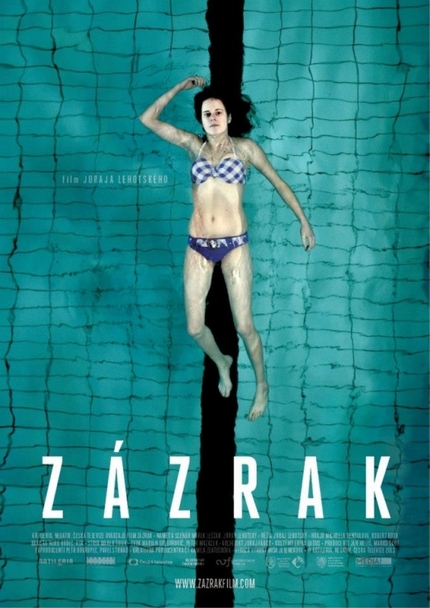Review: Bleak Slovak Drama MIRACLE (ZAZARAK) Triggers Pity For The New Lost Generation

Miracle was written and directed by Juraj Lehotský (co-penned with grey screenwriting eminence of recent Slovak films, Marek Leščák) as his second film. Lehotský has already acquired some prominence with his docudrama debut, Blind Loves, which premiered in the Director´s Fortnight program at Cannes 2008. Even though Miracle is full blooded fiction feature the director retains several documentary aspects to render the experience rawer as did his colleagues, Mira Fornay in My Dog Killer or Iveta Grófová in Made in Ash. Miracle falls within the niche of dreary Slovak dramas under the auspice of the leitmotif of family disintegration.
The first scene of the film opens with hysterical fifteen-year old Ela (Michaela Bendulová) refusing to leave a car. After several minutes, it becomes apparent that she is being referred to a re-education centre; one of the reasons being that her mother does not know how to raise a kid. The social anamnesis draws upon the sins of fathers/mothers scenario adding into the mix a coming-of-age scheme underlined by premature confrontation with the outside world.
Ela is the product of her parents' irresponsibility and the victim of immature illusions about love. She is not only rejected by her mother but also by her junkie boyfriend (played by theatre hot shot Robert Roth) who, like her mother, cannot handle his own life let alone hers. The central storyline plays as revision of the famous forbidden love story, while Julia in this case yearns for love and Romeo for coke. Lady Capulet tries to get her life under control and everybody gets their head around the ever-puzzling conundrum that life is. Dreams are being shattered and the sense of life still out of reach.
The protagonist of Miracle is not prepared to face the outside world as well as heroine in Made in Ash who is left on her own far away from home to do the only thing a lost girl could. Ela undergoes a similar tribulation albeit not for money, but for higher cause - an idyllic life or at least the illusion of idyllic life. The director keeps the frustration piling up until the bitter and almost climactic finale where Ela finally experiences her needed and denied epiphany.
Michaela Bendulová has been already praised for striking performance taking into account also the fact that she is not professional actress and was found in a re-education centre during pre-production. The director keeps the doc feeling enhancing the social realism dimension of the film. Curiously enough, a Seidl´s vibe well-known from Import/Export is traceable and recognizable in one particular scene. Although, the motif of Seidl´s case study on life in west and east part of Europe, running from something and running to something dominates also Miracle, and the foul taste of existential crisis will stay for several days. Lehotský unlike great Austrian iconoclast does not try to shock per se as to construct unfortunate destiny dipped in teenage naivety in a pity-triggering manner.
Lehotský channels collective feeling of young generation, an image that should describe the actual state of affairs. Miracle is a social realist drama by content and form using social and economic background to paint rather unflattering picture of the life of disillusioned generation in post-communist country. The late Slovak films create a mental landscape of up-coming and already lost generation in a sort of zeitgeist manifest while addressing the sore spots analogous to Greek cinema where economic crisis and political turbulence did cause an upheaval in national cinema while offering a peep-hole for outsiders.

Do you feel this content is inappropriate or infringes upon your rights? Click here to report it, or see our DMCA policy.






